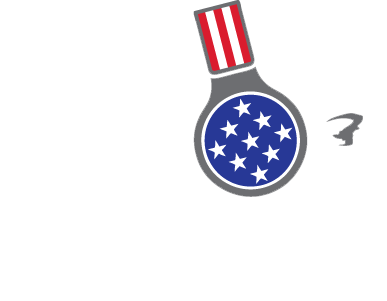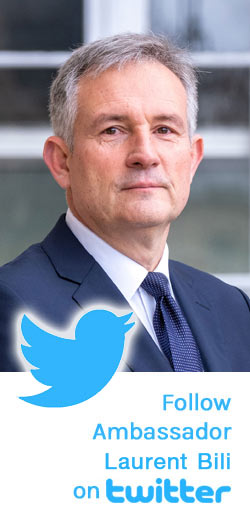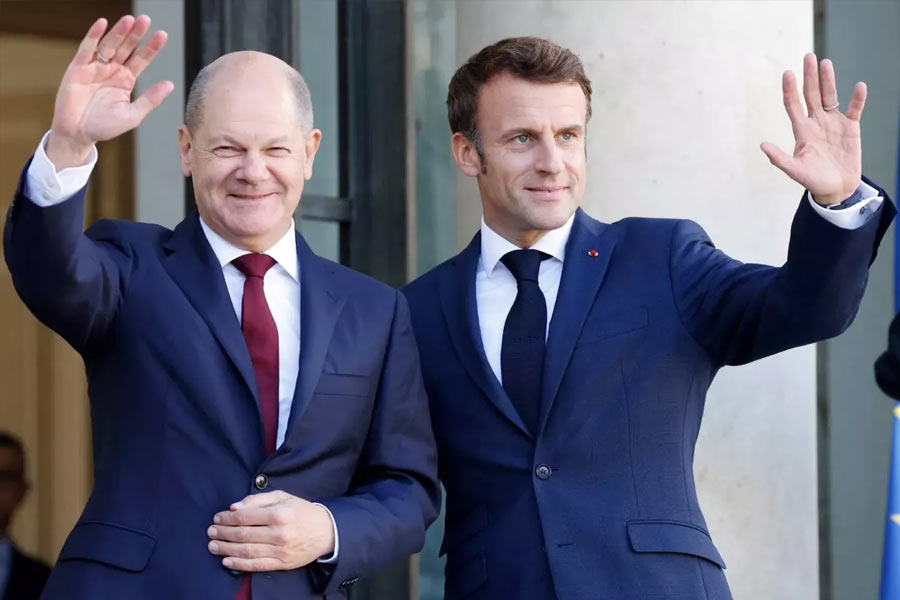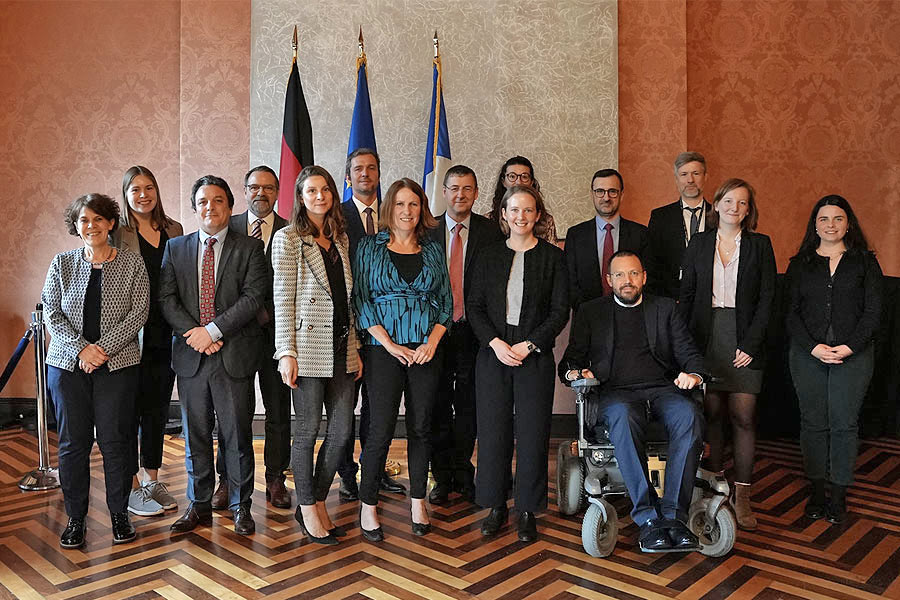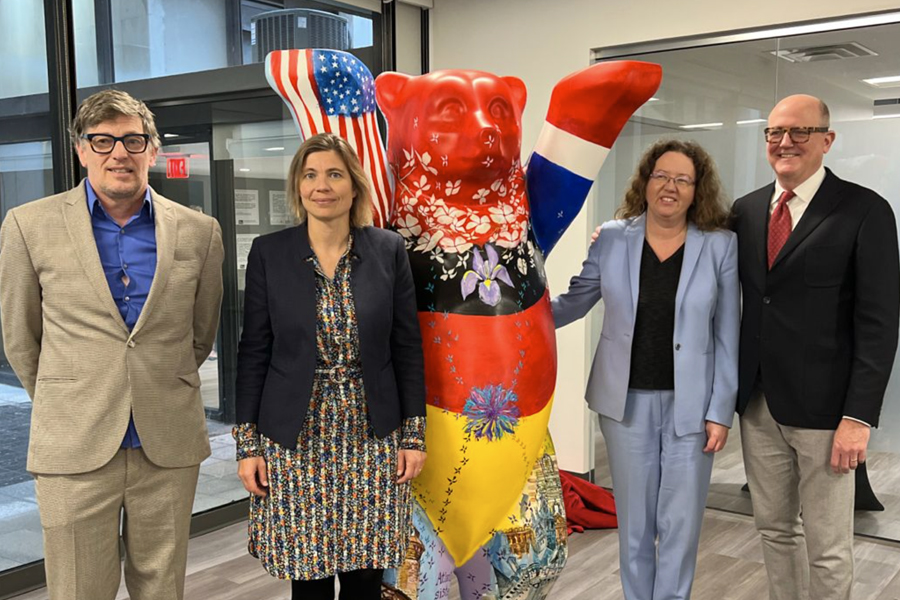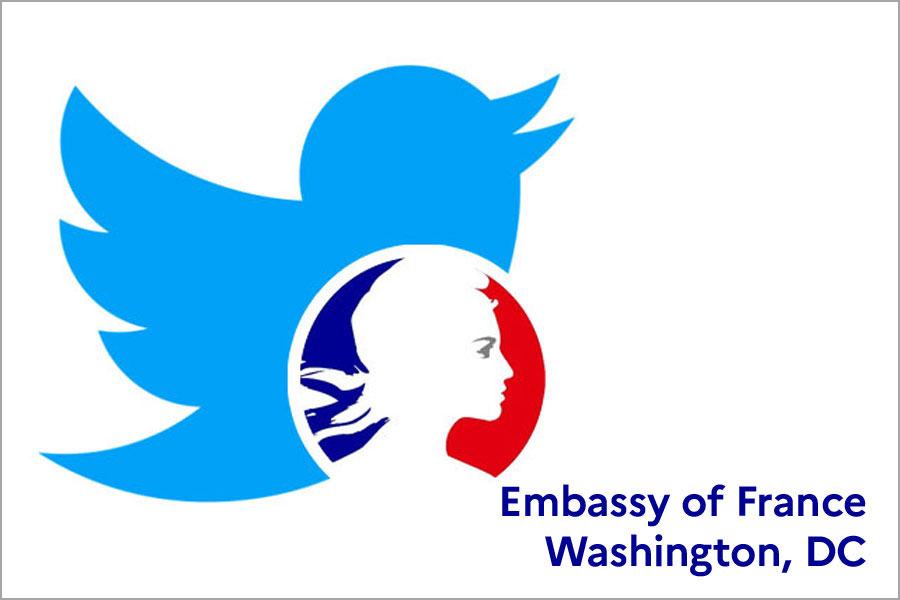60th anniversary of the Élysée Treaty – “Paving the way to a new future for Germany, for France, for Europe”
60th anniversary of the Élysée Treaty – “Paving the way to a new future for Germany, for France, for Europe”
60th anniversary of the Élysée Treaty – “Paving the way to a new future for Germany, for France, for Europe”
SUMMARY
On January 22, 1963, General de Gaulle and Chancellor Adenauer signed a cooperation treaty intended to seal the reconciliation between France and the Federal Republic of Germany.
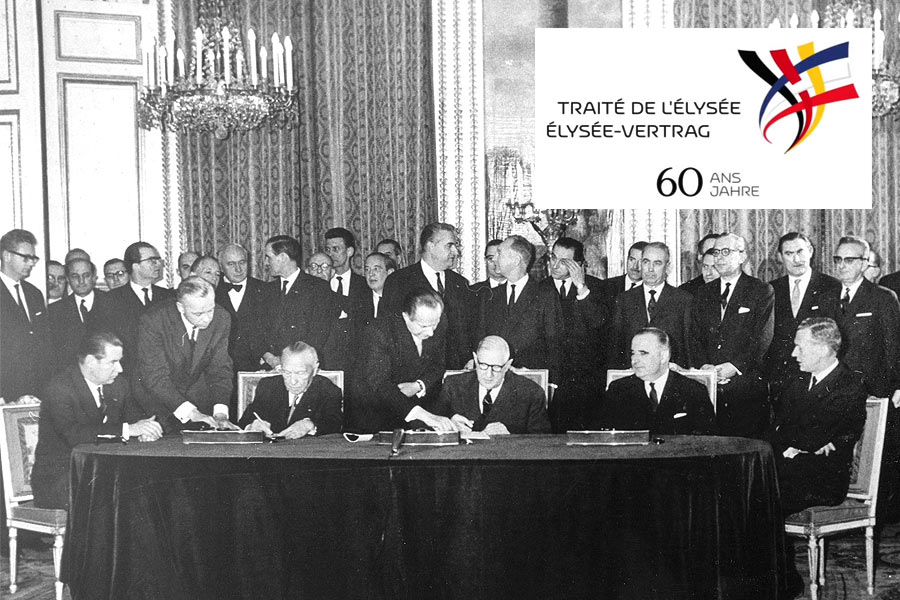
Metadata
Release date: January 23, 2023
Tag(s): Diplomacy, Europe, Foreign policy, Friendship, History

Metadata
Release date: January 23, 2023
Tag(s): Diplomacy, Europe, Foreign policy, Friendship, History
@franceintheus On Jan. 22, 1963, the treaty of 🇫🇷🇩🇪 friendship, the Elysée Treaty, was signed. It constituted a key step in the construction of the deep friendship that unites our two countries today.#france #french #franceintheus ♬ original sound - America's BFF since 1778.
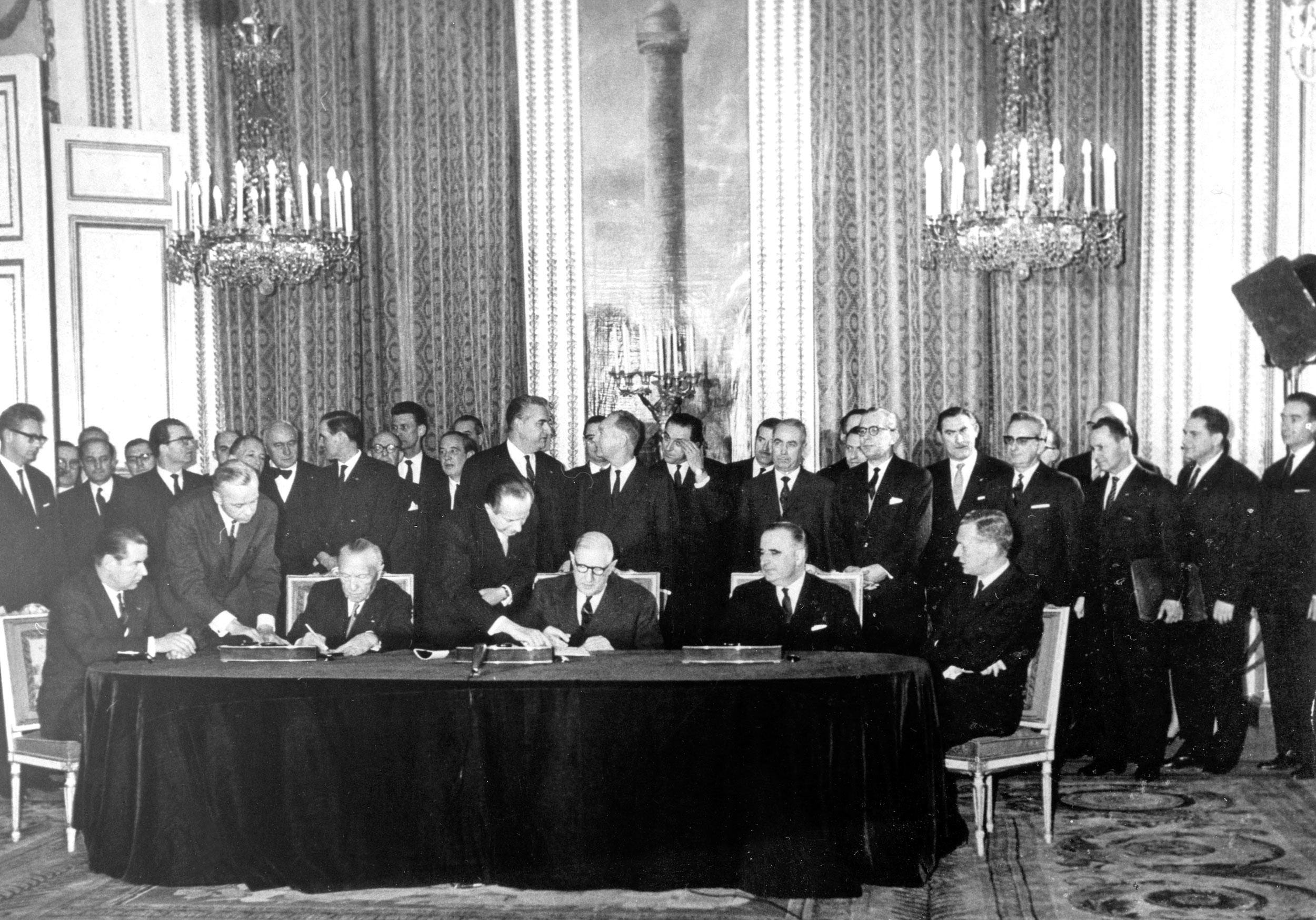
The signing of the treaty in the Salon Murat of the Élysée Palace in Paris on January 22, 1963. Pictured (left to right) at the table: German Foreign Minister Dr. Gerhard Schröder, German Chancellor Konrad Adenauer, President Charles de Gaulle, Prime Minister Georges Pompidou and the French Foreign Minister Maurice Couve de Murville. Photo: German Federal Archives
Elysée Treaty – French and English translation
A la suite de la déclaration commune du Président de la République française et du Chancelier de la République Fédérale d’Allemagne en date du 22 janvier 1963, sur l’organisation et les principes de la coopération entre les deux Etats, les dispositions suivantes ont été agréées :
I. – ORGANISATION
1. Les Chefs d’Etat et de Gouvernement donneront en tant que de besoin les directives nécessaires et suivront régulièrement la mise en oeuvre du programme fixé ci-après. Ils se réuniront à cet effet chaque fois que cela sera nécessaire et, en principe, au moins deux fois par an.
2. Les Ministres des Affaires étrangères veilleront à l’exécution du programme dans son ensemble. Ils se réuniront au moins tous les trois mois. Sans préjudice des contacts normalement établis par la voie des ambassades, les hauts fonctionnaires des deux Ministères des Affaires étrangères, chargés respectivement des affaires politiques, économiques et culturelles, se rencontreront chaque mois alternativement à Paris et à Bonn pour faire le point des problèmes en cours et préparer la réunion des Ministres. D’autre part, les missions diplomatiques et les consulats des deux pays ainsi que leurs représentations permanentes auprès des organisations internationales prendront tous les contacts nécessaires sur les problèmes d’intérêt commun.
3. Des rencontres régulières auront lieu entre autorités responsables des deux pays dans les domaines de la défense, de l’éducation et de la jeunesse. Elles n’affecteront en rien le fonctionnement des organismes déjà existants – commission culturelle franco-allemande, groupe permanent d’Etat-major – dont les activités seront au contraire développées. Les Ministres des Affaires étrangères seront représentés à ces rencontres pour assurer la coordination d’ensemble de la coopération ;
a) les Ministres des Armées ou de la Défense se réuniront au moins une fois tous les trois mois. De même, le Ministre français de l’Education nationale rencontrera, suivant le même rythme, la personnalité qui sera désignée du côté allemand pour suivre le programme de coopération sur le plan culturel ;
b) les Chefs d’Etat-major des deux pays se réuniront au moins une fois tous les deux mois ; en cas d’empêchement, ils seront remplacés par leurs représentants responsables ;
c) le haut-commissaire français à la Jeunesse et aux Sports rencontrera, au moins une fois tous les deux mois, le Ministre fédéral de la Famille et de la Jeunesse ou son représentant.
4. Dans chacun des deux pays, une commission interministérielle sera chargée de suivre les problèmes de la coopération. Elle sera présidée par un haut fonctionnaire des Affaires étrangères et comprendra des représentants de toutes les administrations intéressées. Son rôle sera de coordonner l’action des ministères intéressés et de faire périodiquement rapport à son Gouvernement sur l’état de la coopération franco-allemande. Elle aura également pour tâche de présenter toutes suggestions utiles en vue de l’exécution du programme de coopération et de son extension éventuelle à de nouveaux domaines.
II. PROGRAMME
A. – Affaires étrangères
1. Les deux Gouvernements se consulteront, avant toute décision, sur toutes les questions importantes de politique étrangère, et en premier lieu sur les questions d’intérêt commun, en vue de parvenir, autant que possible, à une position analogue. Cette consultation portera entre autres sur les sujets suivants : Problèmes relatifs aux communautés européennes et à la coopération politique européenne ; Relations Est-Ouest, à la fois sur le plan politique et sur le plan économique ; Affaires traitées au sein de l’Organisation du Traité de l’Atlantique Nord et des diverses organisations internationales auxquelles les deux gouvernements sont intéressés, notamment le Conseil de l’Europe, l’Union de l’Europe Occidentale, l’Organisation de coopération et de développement économique, les Nations Unies et leurs institutions spécialisées.
2. La collaboration, déjà établie dans le domaine de l’information, sera poursuivie et développée entre les services intéressés à Paris et à Bonn et entre les missions dans les pays tiers.
3. En ce qui concerne l’aide aux pays en voie de développement, les deux Gouvernements confronteront systématiquement leurs programmes en vue de maintenir une étroite coordination. Ils étudieront la possibilité d’entreprendre des réalisations en commun. Plusieurs départements ministériels étant compétents pour ces questions, du côté français comme du côté allemand, il appartiendra aux deux ministères des Affaires étrangères de déterminer ensemble les bases pratiques de cette collaboration.
4. Les deux Gouvernements étudieront en commun les moyens de renforcer leur coopération dans d’autres secteurs importants de la politique économique, tels que la politique agricole et forestière, la politique énergétique, les problèmes de communications et de transports et le développement industriel, dans le cadre du Marché commun, ainsi que la politique des crédits à l’exportation.
B. – Défense
I. – Les objectifs poursuivis dans ce domaine seront les suivants :
a. Sur le plan de la stratégie et de la tactique, les autorités compétentes des deux pays s’attacheront à rapprocher leurs doctrines en vue d’aboutir à des conceptions communes. Des instituts franco-allemands de recherche opérationnelle seront créés.
b. Les échanges de personnel entre les armées seront multipliés ; ils concerneront en particulier les professeurs et les élèves des écoles d’Etat-major ; ils pourront comporter des détachements temporaires d’unités entières. Afin de faciliter ces échanges, un effort sera fait de part et d’autre pour l’enseignement pratique des langues chez les stagiaires.
c. En matière d’armements, les deux Gouvernements s’efforceront d’organiser un travail en commun dès le stade de l’élaboration des projets d’armement appropriés et de la préparation des plans de financement.
A cette fin, des commissions mixtes étudieront les recherches en cours sur ces projets dans les deux pays et procéderont à leur examen comparé. Elles soumettront des propositions aux ministres qui les examineront lors de leurs rencontres trimestrielles et donneront les directives d’application nécessaires.
II. – Les gouvernements mettront à l’étude les conditions dans lesquelles une collaboration franco-allemande pourra être établie dans le domaine de la défense civile.
C. – Education et Jeunesse
En matière d’éducation et de jeunesse, les propositions contenues dans les mémorandums français et allemand des 19 septembre et 8 novembre 1962 seront mises à l’étude selon les procédures indiquées plus haut :
1. Dans le domaine de l’éducation, l’effort portera principalement sur les points suivants :
a) Enseignement des langues : Les deux Gouvernements reconnaissent l’importance essentielle que revêt pour la coopération franco-allemande la connaissance dans chacun des deux pays de la langue de l’autre. Ils s’efforceront, à cette fin, de prendre des mesures concrètes en vue d’accroître le nombre des élèves allemands apprenant la langue française et celui des élèves français apprenant la langue allemande. Le Gouvernement fédéral examinera, avec les gouvernements des Länder, compétents en la matière, comment il est possible d’introduire une réglementation qui permette d’atteindre cet objectif. Dans tous les établissements d’enseignement supérieur, il conviendra d’organiser un enseignement pratique de la langue française en Allemagne et de la langue allemande en France, qui sera ouvert à tous les étudiants.
b) Problème des équivalences : Les autorités compétentes des deux pays seront invitées à accélérer l’adoption des dispositions concernant l’équivalence des périodes de scolarité, des examens, des titres et diplômes universitaires.
c) Coopération en matière de recherche scientifique : Les organismes de recherches et les instituts scientifiques développeront leurs contacts en commençant par une information réciproque plus poussée, des programmes de recherches concertées seront établis dans les disciplines où cela se révélera possible.
2. Toutes les possibilités seront offertes aux jeunes des deux pays pour resserrer les liens qui les unissent et pour renforcer leur compréhension mutuelle. Les échanges collectifs seront en particulier multipliés. Un organisme destiné à développer ces possibilités et à promouvoir les échanges sera créé par les deux pays avec, à sa tête, un conseil d’administration autonome. Cet organisme disposera d’un fonds commun franco-allemand qui servira aux échanges entre les deux pays d’écoliers, d’étudiants, de jeunes artisans et de jeunes travailleurs.
III. – DISPOSITIONS FINALES
1. Les directives nécessaires seront données dans chaque pays pour la mise en oeuvre immédiate de ce qui précède. Les Ministres des Affaires étrangères feront le point des réalisations acquises à chacune de leurs rencontres.
2. Les deux Gouvernements tiendront les Gouvernements des autres Etats membres des Communautés européennes informés du développement de la coopération franco-allemande.
3. A l’exception des clauses concernant la défense, le présent Traité s’appliquera également au Land de Berlin, sauf déclaration contraire faite par le Gouvernement de la République fédérale d’Allemagne au Gouvernement de la République française dans les trois mois qui suivront l’entrée en vigueur du présent Traité.
4. Les deux Gouvernements pourront apporter les aménagements qui se révéleraient désirables pour la mise en application du présent Traité.
5. Le présent Traité entrera en vigueur dès que chacun des deux Gouvernements aura fait savoir à l’autre que, sur le plan interne, les conditions nécessaires à sa mise en oeuvre ont été remplies.
Fait à Paris, le 22 janvier 1963, en double exemplaire, en langue française et en langue allemande, les deux textes faisant également foi.
Le Président de la République française, Charles de GAULLE
Le Premier Ministre français, Georges POMPIDOU
Le Ministre français des Affaires étrangères, Maurice COUVE de MURVILLE
Le Chancelier de la République fédérale d’Allemagne, Konrad ADENAUER
Le Ministre fédéral des Affaires étrangères de la République fédérale d’Allemagne Gerhard SCHROEDER
Following the Common Declaration of the President of the French Republic and the Chancellor of the Federal Republic of Germany, dated January 22, 1963, on the organization and the principles of the cooperation between the two States, the following provisions have been agreed upon:
I – ORGANIZATION
1. The Heads of State and Government will give whenever required the necessary directives and will follow regularly the implementation of the program set hereinunder. They will meet for this purpose whenever this is necessary and, in principle, at least twice a year.
2. The Ministers of Foreign Affairs will see to the implementation of the program as a whole. They will meet at least once every three months. Without prejudice to the contacts normally established through the channels of the embassies, high officials of the two Ministries of Foreign Affairs, responsible respectively for political, economic and cultural affairs, will meet each month in Paris and Bonn alternately to survey current problems and to prepare the Ministers’ meeting. In addition, the diplomatic missions and the consulates of the two countries, and also the permanent missions to the international organizations, will make all the necessary contacts on the problems of common interest.
3. Regular meetings will take place between the responsible authorities of the two countries in the fields of defense, education and youth. These meetings will not in any way affect the functioning of the already existing bodies – French-German Cultural Commission, Permanent General Staff Group – whose activities will on the contrary be extended. Both the Ministers of Foreign Affairs will be represented at these meetings in order to ensure the overall coordination of the cooperation.
a) The Ministers of the Armed Forces or of Defense will meet at least once every three months. Similarly, the French Minister of National Education will meet, at the same intervals, with the person who will be designated by Germany to follow up the program of cooperation on the cultural level.
b) The Chiefs of Staff of the two countries will meet at least once every two months; in the event of their being unable to meet, they will be replaced by their responsible representatives.
c) The French High Commissioner for Youth and Sports will meet, at least once every two month, with the Federal Minister for Family and Youth Affairs or his representative.
4. In each of the countries, an interministerial commission will be charged with following problems of cooperation. It will be presided over by a high Foreign Ministry official and it will include representatives of all the administrations concerned. Its role will be to coordinate the action of the Ministries concerned and to report periodically to its Government on the state of French-German cooperation. It will also have the task of presenting all useful suggestions with a view to implementing the program of cooperation and to its ultimate extension to new domains.
II – PROGRAM
A. – Foreign Affairs
1. The two Governments will consult each other, prior to any decision, on all important questions of foreign policy, and in the first place on questions of common interest, with a view to arriving, insofar as possible, at a similar position.
This consultation will cover, among other subjects, the following: Problems relative to the European Communities and to European political cooperation; East-West relations, both on the political and economic levels; Subjects dealt with in the North Atlantic Treaty Organization and the various international organizations in which the two Governments are interested, notably the Council of Europe, Western European Union, the Organization for Economic Cooperation and Development, the United Nations and its specialized agencies.
2. The cooperation already established in the area of information will be continued and developed between the services concerned in Paris and Bonn and between the diplomatic missions in other countries .
3. With regard to aid to the emergent countries, both Governments will systematically compare their programs with a view to maintaining close cooperation. They will study the possibility of engaging in joint undertakings. Since several Ministerial departments are responsible for these matters in both in France and Germany, it will be the duty of the two Ministries of Foreign Affairs to determine together the practical bases for this cooperation.
4. The two Governments will study together the means for strengthening their cooperation in other important sectors of economic policy, such as agricultural and forest policy; energy policy; communications and transportation problems and industrial development, within the framework of the Common Market; as well as export credits policy.
B. – Defense
1- The following objectives will be pursued in this domain:
a) On the level of strategy and tactics, the competent authorities of both countries will endeavor to harmonize their doctrines with a view to arriving at mutual concepts. French-German institutes for operational research will be created.
b) Exchanges of personnel between the armed forces will be increased. These particularly concern professors and students from the general staff schools. They may include temporary detachments of entire units. In order to facilitate these exchanges, an effort will be made on both sides to give the trainees pratical language instruction.
c) With regard to armaments, both Governments will endeavor to organize a joint program from the the time of drafting appropriate armaments projects and formulating financing plans.
To this end, joint committees will study the research being conducted on these projects in both countries and will carry out a comparative study. They will submit proposals to the Ministers, who will examine them during their quarterly meetings and will give the necessary directives for implementation.
II. – The governments will study the conditions under which Franco-German cooperation can be established in the field of civil defense.
C. – Education and Youth
With regard to education and youth, the proposals contained in the French and German memoranda of September 19 and November 8, 1962 will be studied, in accordance with the procedures indicated hereinabove.
1. In the field of education, the effort will chiefly concern the following points:
a) Language instruction: The two Government recognize the essential importance that the knowledge in each of the two countries of the other’s language holds for French-German cooperation. They will endeavor, to this end, to take concrete measures with a view to increasing the number of German students learning the French language and that of French students learning the German language. The Federal Government will examine, with the governments of the Laender competent in this matter, how it is possible to introduce regulations making it possible to achieve this objective. In all the establishments for higher education, practical courses in French will be organized in German and practical courses in German will be organized in France, which will be open to all students.
b) The problem of equivalences: The competent authorities of both countries will be asked to accelerate the adoption of provisions concerning the equivalence of academic periods, examinations and university degrees and diplomas.
c) Cooperation in scientific research: Research bodies and scientific institutes will increase their contacts, beginning with more extensive reciprocal information. Concerted research programs will be established in the areas in which it will appear possible.
2. All opportunities will be offered to the young people of both countries in order to draw closer the ties that unite them and to strengthen their mutual cooperation. Collective exchanges, particularly, will be increased.
A body whose purpose will develop these possibilities and to promote exchanges will be created by the two countries with an autonomous administrative council at its head. This body will have at its disposal a joint French-German fund for the exchanges between the two countries of pupils, students, young artists and workers.
III – FINAL PROVISIONS
1. The necessary directives will be be given in each country for the immediate enactment of the preceeding. The Minister of Foreign Affairs will examine the progress made at each of their meetings.
2. The two Governments will keep the Governments of the member States of the European Communities informed on the development of French-German cooperation.
3. With the exception of the provisions concerning defense, the present Treaty will also be applied to the Land of Berlin, barring a contrary declaration made by the Government of the federal Republic of Germany of the government of the French Republic in the three months following the entry into force of the present Treaty.
4. The two Governments may make any improvements which might appear desirable for the implementation of the present Treaty.
5. The present treaty will enter into force as soon as each of the two Governments will have made known to the other that, on the domestic level, the necessary conditions for its implementation have been fulfilled.
Done at Paris on the twenty-second day of January in the year one thousand nine hundred and sixty-three, in both the French and German languages, both texts being equally authentic.
The President of the French Republic, Charles de GAULLE
The French Prime Minister, Georges POMPIDOU
The French Minister of Foreign Affairs, Maurice COUVE de MURVILLE
The Chancellor of the Federal Republic of Germany, Konrad ADENAUER
The Federal Minister of Foreign Affairs, of the Federal Republic of Germany, Gerhard SCHROEDER
Related posts
